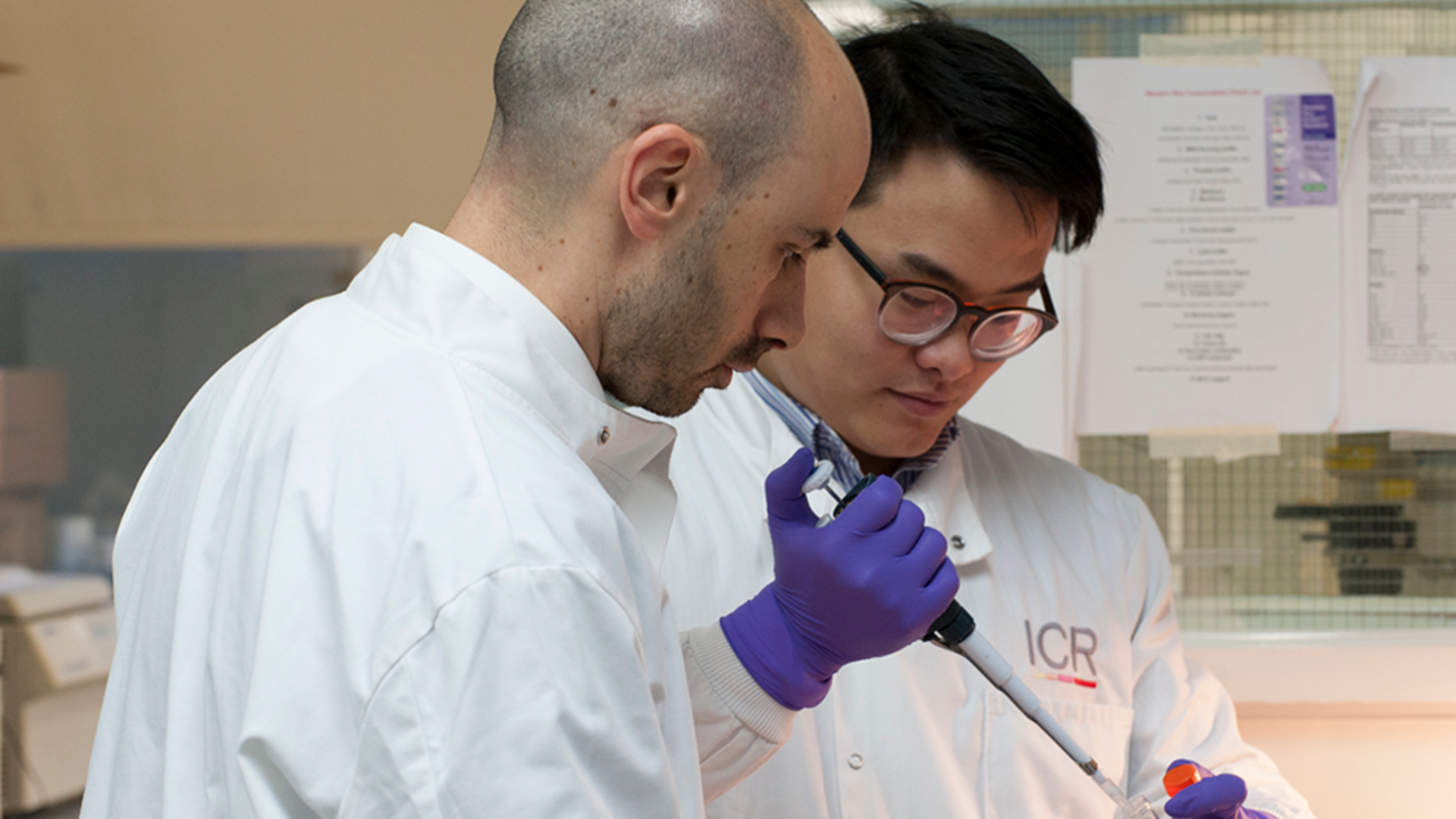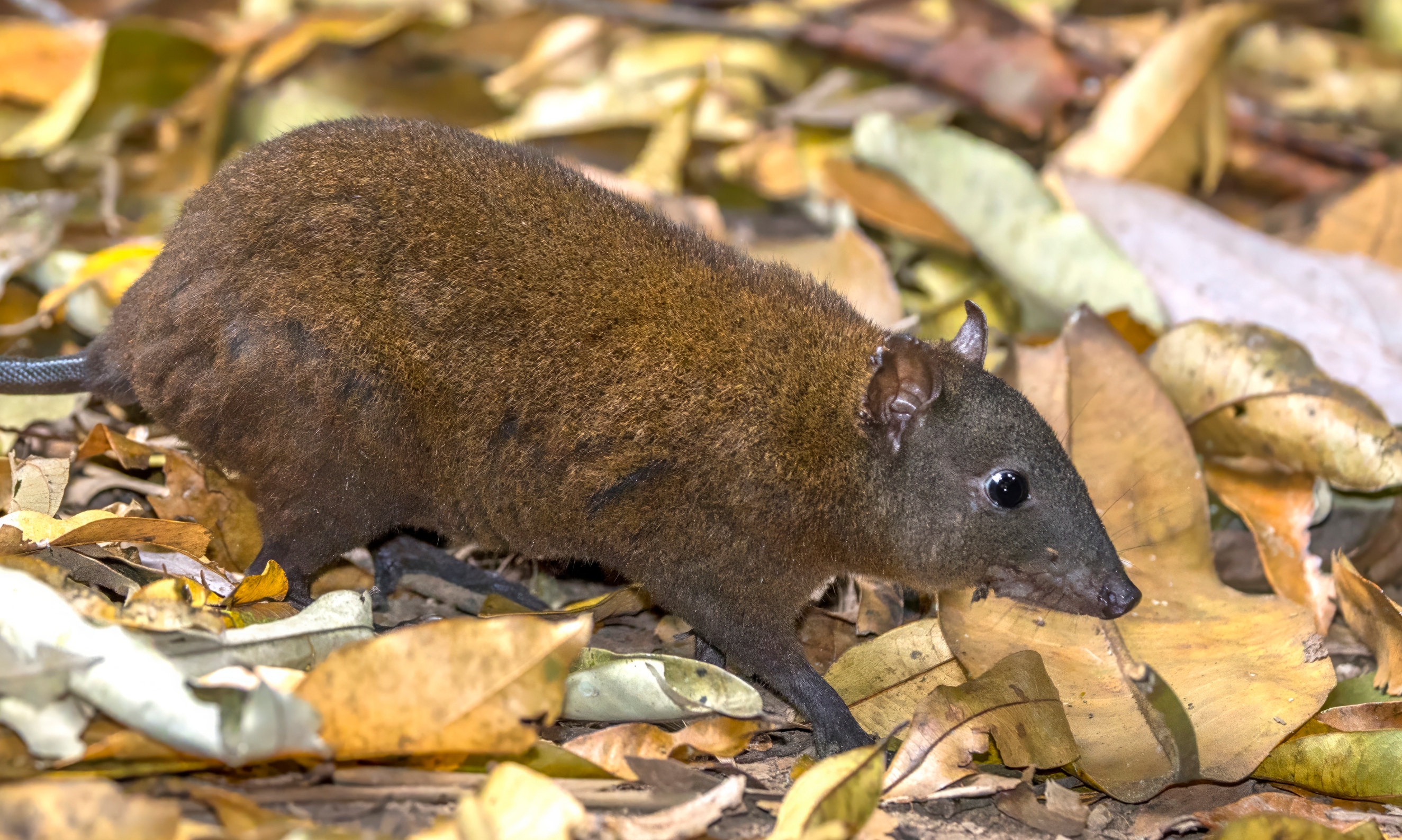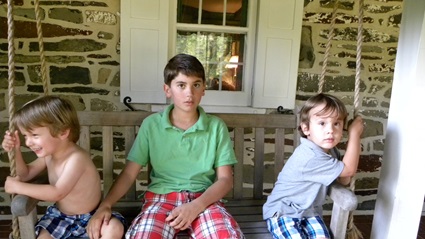World-class research
We will unravel cancer’s ecosystem, overcome its evolution and drug resistance, and advance diagnosis and treatment – through world-class fundamental, translational and clinical research.
The ICR and The Royal Marsden have worked together on a joint strategy for world-class cancer research – motivated by the ambition of offering a long and healthy life for everyone affected by cancer.
Cancer research as an ecosystem
We will learn from the latest scientific understanding of cancer, which sees cancer cells evolving within a complex interconnected ecosystem.
Our scientists and clinicians will draw on fundamental discoveries about cancer right across the ICR and beyond, find ways to diagnose and target cancer more effectively, and improve treatment through innovative clinical trials. We will work through our wide network of research partners to improve the outlook for patients with cancer here in the UK and across the world.
Our world-class research will run from bench to bedside and back again – taking research findings to patients, and learning from the experience in the clinic. We aim to understand cancer better, and improve diagnosis and treatment for patients, by working across four research themes:
- Unravel the cancer ecosystem
- Diagnose better and earlier
- Target weaknesses in cancer
- Treat cancer more precisely
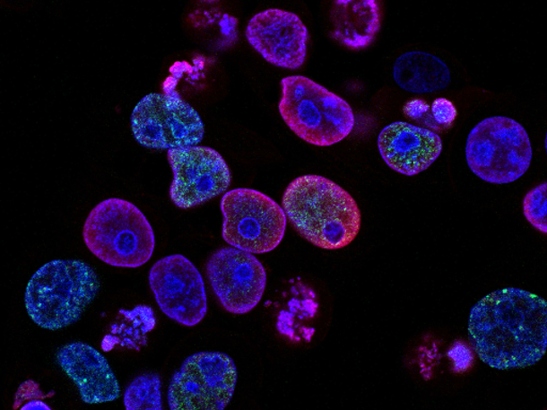
More about our research themes
We will reveal how cancers develop, adapt and evolve as part of a complex ecosystem of signals, cells, tissues and the microbiome.
The more we learn about cancer, the more we realise that cancer cells do not exist in isolation. Like the ecosystems we observe in our natural world, cancers develop as part of a complex interconnected ecosystem. Our research is shedding new light on how cancer interacts with its environment as it adapts and evolves.
Our challenge is to unravel cancer’s complexity, evolution and ecosystems, and reveal new weaknesses that can be targeted by treatment. We will achieve this by examining and understanding cancer at unprecedented resolution.
We will decipher the fundamental mechanisms that drive cancer and how mutations affect the structure and function of key proteins within cancer cells. This will allow us to investigate how healthy cells remain stable and how cancer cells can become vulnerable. We will learn to predict and shape the path of cancer evolution – as a means of preventing or overcoming resistance to treatment.
Our researchers will create new tools and enhanced models of the disease to reveal how normal cells become cancerous and the mechanisms that drive their spread. Using cutting-edge technologies, we hope to find ways of mapping and disrupting the cancer ecosystem.
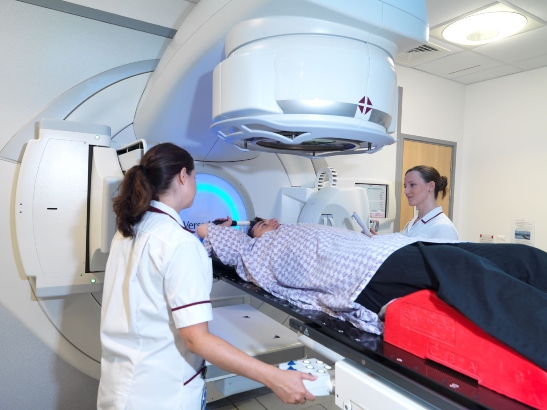
We will diagnose cancer more precisely, detect the disease earlier and identify initial signs of recurrence or resistance – through new biomarkers, diagnostics and understanding of cancer risk.
Cancer is not a single disease. There are many different types and sub-types of cancer, each with its own characteristics, risk factors and causes. Because of this incredible diversity, it is vital that we can diagnose cancer precisely to identify the best treatment for each patient.
Cancer is also much easier to treat before it spreads to other parts of the body, so it is vital to detect cancer as early as possible to give people with cancer the best chance of survival.
We aim to exploit the latest advanced technologies to create a new generation of cancer diagnostics that analyse cancer’s interactions in its ecosystem. And we will develop new techniques to detect cancer more sensitively – to diagnose cancer earlier, detect signs of recurrence, or pick up residual disease when a cure is still possible.
We will also examine the role of genetic and lifestyle factors in the development of cancer to develop new strategies for targeted screening and early detection.
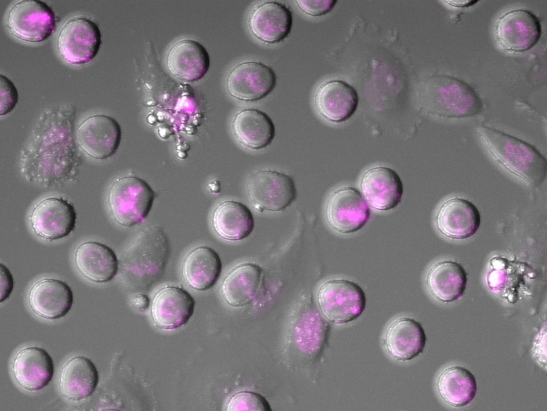
We will deliver benefits for cancer patients by developing smarter, kinder treatments through innovative clinical trials and taking advances into NHS care.
<
The ICR and The Royal Marsden bring together expertise in discovery science and the clinic to deliver innovative, practice-changing clinical trials for patients with cancer.
We will develop a new generation of smarter, kinder treatments for patients – driven by the latest discoveries in cancer science and innovations in clinical research and data analysis. New trial methodologies will allow us to direct patients to the most suitable of a range of drugs, introduce treatment arms as new options become available, or adjust treatment over time to keep one step ahead of cancer. We will enhance our ability to assess targeted drugs, radiotherapy and immunotherapy together in combination.
We want everyone affected by cancer to benefit from advances in precision medicine. We will work through national and international networks to ensure we can make trials available not only for people with the most common cancers, but also for those with hard-to-treat or rarer kinds.
Treating more precisely cannot only extend lives and cure more people, but also offer gentler treatment with fewer side effects. And by learning more about patients’ risk of side effects, we can give treatments as kindly as possible.
We will deliver benefits for cancer patients by developing smarter, kinder treatments through innovative clinical trials and taking advances into NHS care.
The ICR and The Royal Marsden bring together expertise in discovery science and the clinic to deliver innovative, practice-changing clinical trials for patients with cancer.
We will develop a new generation of smarter, kinder treatments for patients – driven by the latest discoveries in cancer science and innovations in clinical research and data analysis. New trial methodologies will allow us to direct patients to the most suitable of a range of drugs, introduce treatment arms as new options become available, or adjust treatment over time to keep one step ahead of cancer. We will enhance our ability to assess targeted drugs, radiotherapy and immunotherapy together in combination.
We want everyone affected by cancer to benefit from advances in precision medicine. We will work through national and international networks to ensure we can make trials available not only for people with the most common cancers, but also for those with hard-to-treat or rarer kinds.
Treating more precisely cannot only extend lives and cure more people, but also offer gentler treatment with fewer side effects. And by learning more about patients’ risk of side effects, we can give treatments as kindly as possible.
